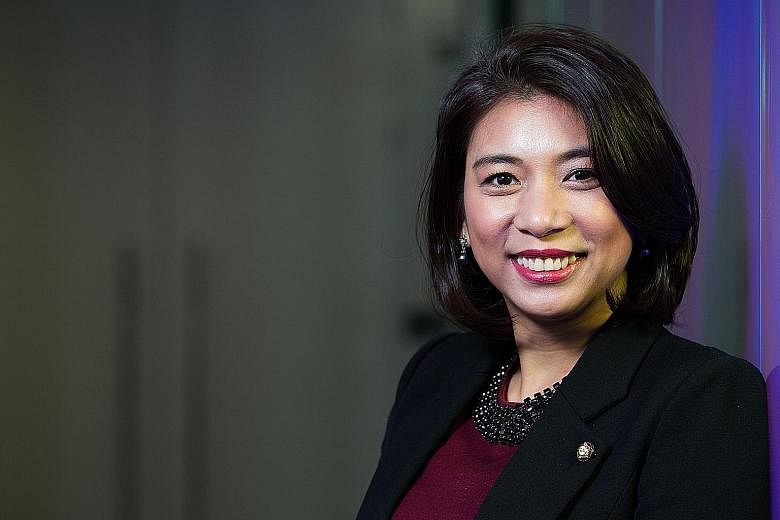SEOUL • The more famous that Ms Jasmine Lee became in South Korea - first as a Philippine-born movie star and then as the country's first naturalised legislator - the more she became a lightning rod for the debate on immigration.
Recruited four years ago to represent the ruling Saenuri Party as a proportional representative in Parliament, Ms Lee has become an outspoken campaigner for immigration in a society that prides itself on ethnic homogeneity.
While she is regularly the target of racially based online attacks, Ms Lee has also provoked robust discussion on national identity as the country confronts the reality of a shrinking workforce as its population ages and the birth rate declines.
Policymakers who for decades stressed the importance of preparing for eventual unification with North Korea are waking up to a more immediate problem: How to stoke economic growth as the number of South Koreans aged 15 to 64 peaks at 37 million this year and then begins to drop steadily.
After the rapid gains in efficiency that saw the rise of industrial powerhouses such as Hyundai Motor and Samsung Electronics, improvements in labour productivity are becoming harder to find. Advocates such as Ms Lee argue that a carefully calibrated immigration programme could help to fill worker shortages in factories and bring in creative minds in fields from computing to finance.
"The country has grown so fast economically that the mindset of the people hasn't actually kept up," Ms Lee, 39, said. "Someone should actually plan out how Korea would look with a more diverse population - how it would look in 10 or 20 years - but nobody is actually doing that."
President Park Geun Hye's administration has taken small steps forward in its 2016-2020 demographics management plan. It will establish a "control tower" to help coordinate government agencies on all matters concerning foreigners and immigrants in South Korea. More international students will be invited and professionals will be encouraged to stay longer.
Previous polls have indicated mixed feelings in South Korea. The proportion of people who think social cohesion has been damaged by an increase in the number of multicultural families rose to 33 per cent in 2013 from 26 per cent two years earlier, according to a survey by the Asan Institute for Policy Studies.
The number of foreign residents has doubled over the past decade to about 1.9 million in a total population of 50 million. Foreign workers account for about 2.3 per cent of the labour force, according to the most recent government figures.
BLOOMBERG

